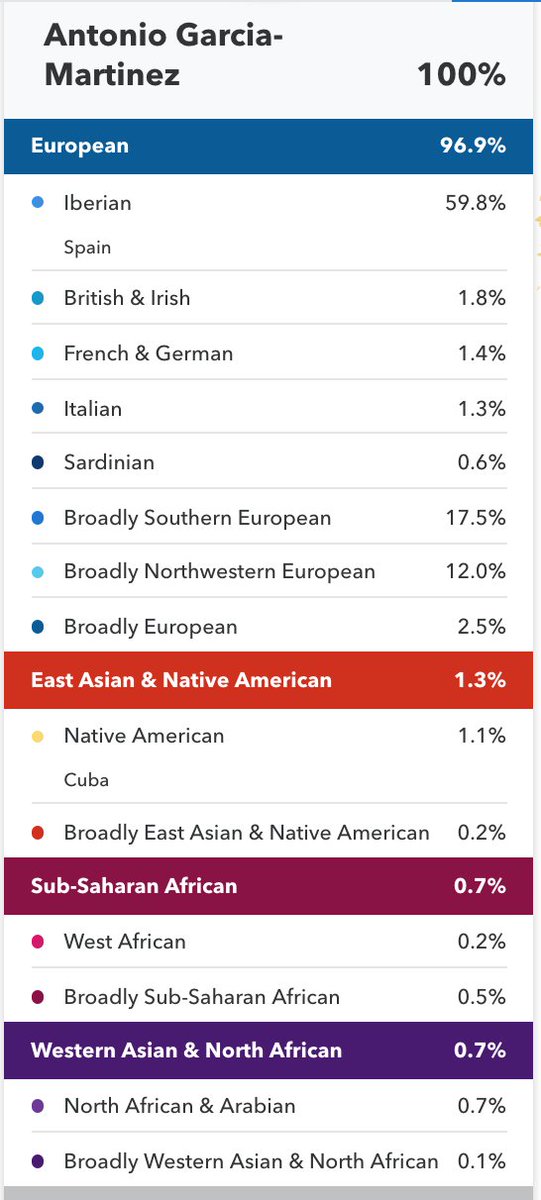There is this inertia that most people in business who think they are successful have that prevents them from acting on things until it is too late. It is why they are caught unawares by change.
I read ”Only the paranoid survives” and I am seeing it play out in real life again.
More from Osaretin Victor Asemota
More from Life
Okay hope everyone having a lovely weekend. Lots of love today. Feeling very blessed 🥰 Going through NNOX tweets from last week. Time to compile threads and bring you highlights. No need to go digging old tweets if I do for you 🤗 FDA, Secondary, and 3P510k. Let’s review..
The NNOX news flow been exceptionally good. I tweet about Fear Uncertainty Doubt and how short sellers leverage friction in news flow to mine some of your gains. NNOX published Form F-1/A to remove friction. Investors have answers.
Form F-1/A Link:
Form F-1 is over 200 detailed pages. Very concentrated. Everything you need for rest of this month in the document. A few notes for you. NNOX FDA approval uses a third party review organization in 510k process. This is abbreviated to 3P510k.
I covered the 3P510K in thread here: https://t.co/w7zE882CVk
Reference to Eagle eyes: https://t.co/gT779MFX82
We discover in F-1 that 3P510K recommended clearance of Nanox Source. This triggers a 30 day timeline to approval by FDA. However ...
Look at you favorite broker news for NNOX. I look at 3 different broker none of them comment NNOX from 60 to 80 on news that 3P510k recommended FDA approve NNOX device. NNOX get a letter and slide 10% we get headline. But no headline for big pop 🤷♂️ that’s the friction.
The NNOX news flow been exceptionally good. I tweet about Fear Uncertainty Doubt and how short sellers leverage friction in news flow to mine some of your gains. NNOX published Form F-1/A to remove friction. Investors have answers.
Form F-1/A Link:
Form F-1 is over 200 detailed pages. Very concentrated. Everything you need for rest of this month in the document. A few notes for you. NNOX FDA approval uses a third party review organization in 510k process. This is abbreviated to 3P510k.
I covered the 3P510K in thread here: https://t.co/w7zE882CVk
Reference to Eagle eyes: https://t.co/gT779MFX82
We discover in F-1 that 3P510K recommended clearance of Nanox Source. This triggers a 30 day timeline to approval by FDA. However ...
Eagle-eyes \U0001f985 https://t.co/w1wF3Ysmt1
— Harvey \U0001f1fa\U0001f1f8 (@realharveymark) February 12, 2021
Look at you favorite broker news for NNOX. I look at 3 different broker none of them comment NNOX from 60 to 80 on news that 3P510k recommended FDA approve NNOX device. NNOX get a letter and slide 10% we get headline. But no headline for big pop 🤷♂️ that’s the friction.
You May Also Like
1. Project 1742 (EcoHealth/DTRA)
Risks of bat-borne zoonotic diseases in Western Asia
Duration: 24/10/2018-23 /10/2019
Funding: $71,500
@dgaytandzhieva
https://t.co/680CdD8uug
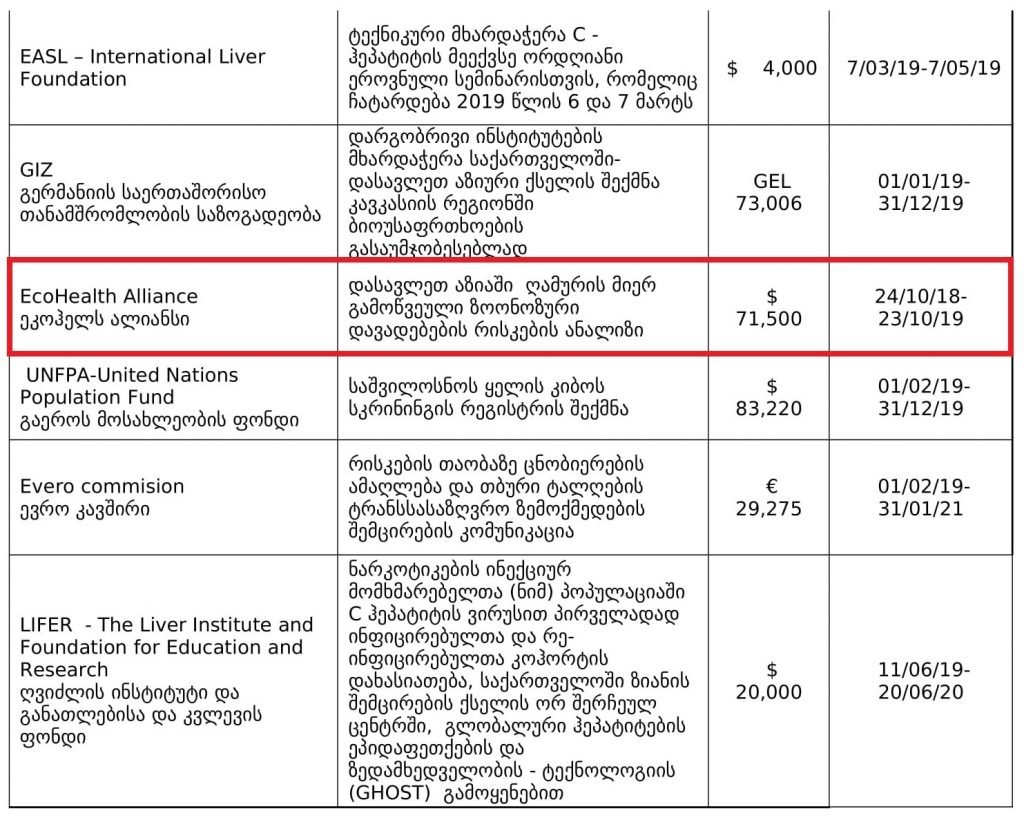
2. Bat Virus Database
Access to the database is limited only to those scientists participating in our ‘Bats and Coronaviruses’ project
Our intention is to eventually open up this database to the larger scientific community
https://t.co/mPn7b9HM48
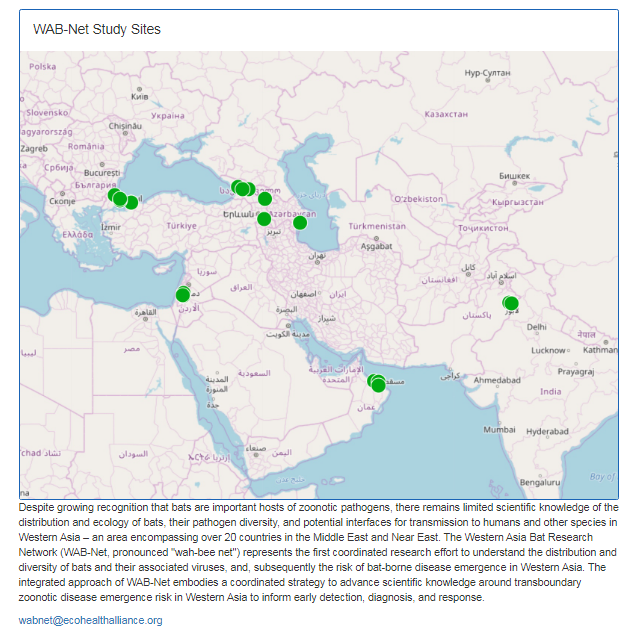
3. EcoHealth Alliance & DTRA Asking for Trouble
One Health research project focused on characterizing bat diversity, bat coronavirus diversity and the risk of bat-borne zoonotic disease emergence in the region.
https://t.co/u6aUeWBGEN

4. Phelps, Olival, Epstein, Karesh - EcoHealth/DTRA
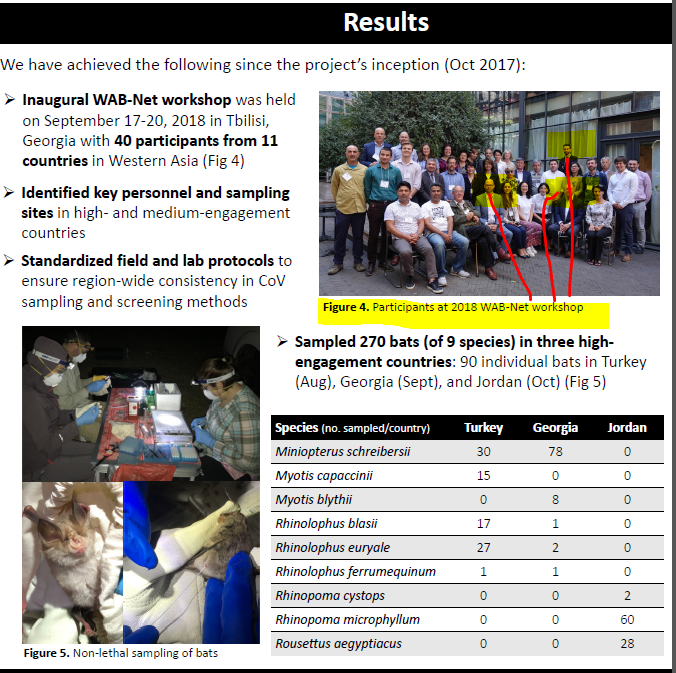
5, Methods and Expected Outcomes
(Unexpected Outcome = New Coronavirus Pandemic)
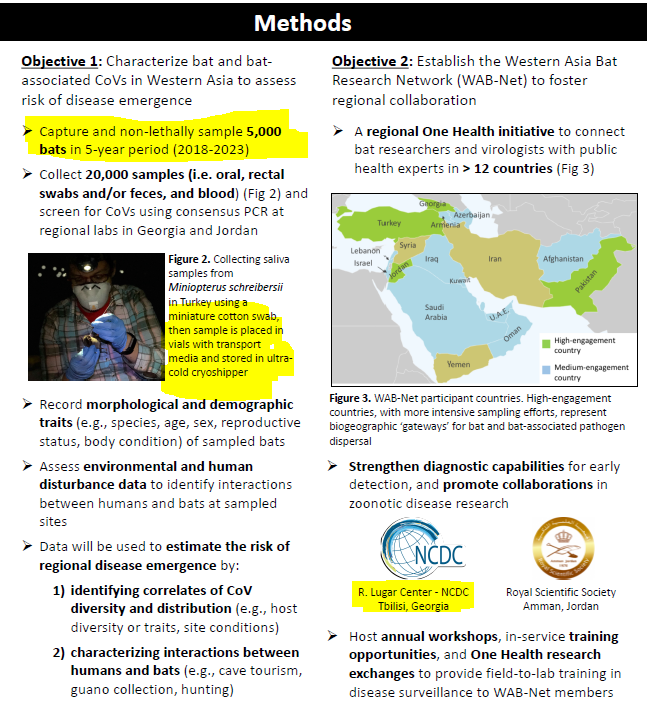
Risks of bat-borne zoonotic diseases in Western Asia
Duration: 24/10/2018-23 /10/2019
Funding: $71,500
@dgaytandzhieva
https://t.co/680CdD8uug

2. Bat Virus Database
Access to the database is limited only to those scientists participating in our ‘Bats and Coronaviruses’ project
Our intention is to eventually open up this database to the larger scientific community
https://t.co/mPn7b9HM48

3. EcoHealth Alliance & DTRA Asking for Trouble
One Health research project focused on characterizing bat diversity, bat coronavirus diversity and the risk of bat-borne zoonotic disease emergence in the region.
https://t.co/u6aUeWBGEN

4. Phelps, Olival, Epstein, Karesh - EcoHealth/DTRA

5, Methods and Expected Outcomes
(Unexpected Outcome = New Coronavirus Pandemic)













